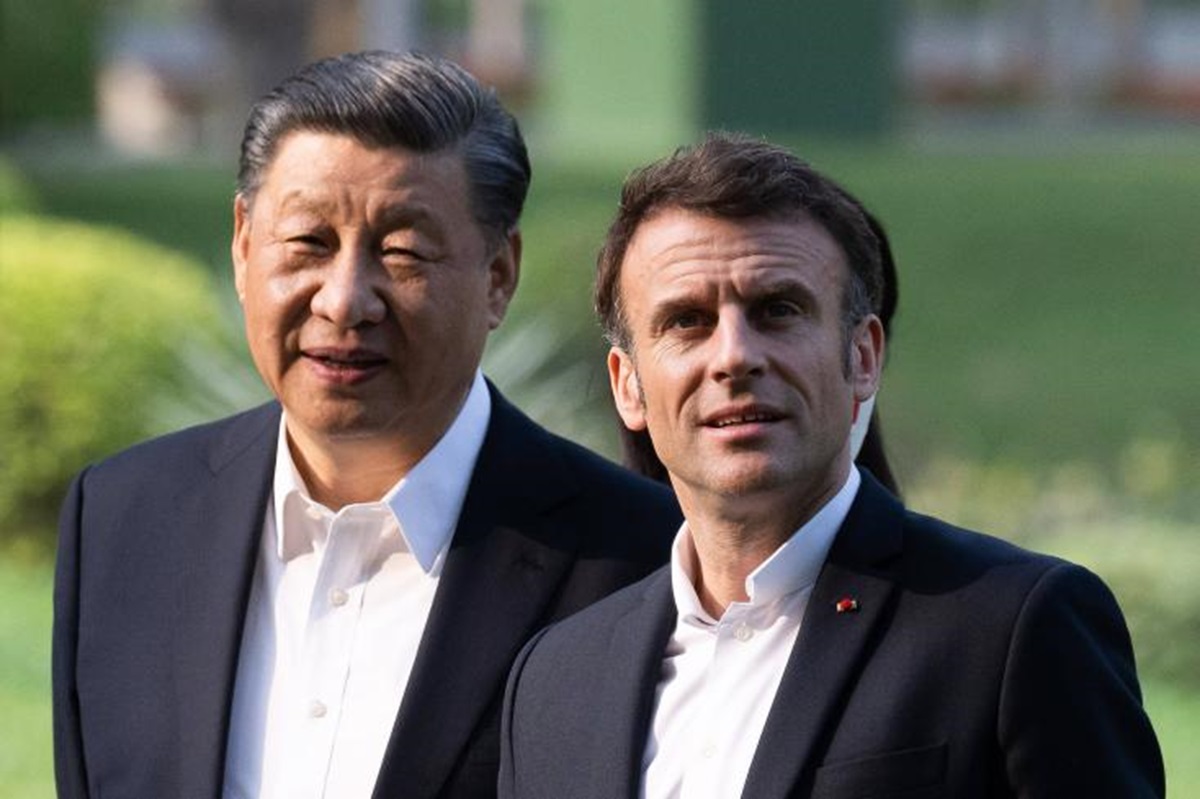International
Xi Jinping arrives in France to use Macron for his own purposes

Xi Jinping arrives in Paris on Sunday, where his French counterpart Emmanuel Macron plans to support trade “reciprocity” and the search for a resolution to the war in Ukraine, in the face of a Chinese president who continues to show support for Russia.
Returning to Europe for the first time since 2019, the Asian superpower’s number one has organized his tour so as to strike a diplomatic balance: after a state visit to France, which has been asking him for a year to use his influence to “bring Russia to its senses,” he will travel to Serbia and Hungary, two countries that have remained close to Moscow.
On Monday, Xi Jinping, who arrived to celebrate 60 years of Franco-Chinese diplomatic relations, will hold a series of meetings with Emmanuel Macron, who consulted earlier with German Chancellor Olaf Scholz.
In the morning, Ursula von der Leyen, President of the European Commission, will join the Franco-Chinese duo at the Elysee Palace for a session designed to raise trade issues.
And there are many. The European Union has stepped up its investigations into Chinese state subsidies to various industries, particularly electric vehicles, which it has accused of distorting competition, in recent months, fearing that it will be caught in the crossfire between the massively subsidized economies of the United States and China.
So Xi inping has a lot to discuss from a trade perspective and will certainly try to break the European position on the issue of electric cars and possible duties to be applied to Chinese brands. It will be easy for him to point out how Peugeut and Renault, the Grenadian giants, have manufacturing operations in China and useful partnerships. Macron, who is politically weak, will be easy to blackmail
In an interview with La Tribune on Sunday, Emmanuel Macron acknowledged that the Europeans were “not unanimous” on the strategy to be adopted because, he said, “some actors still see China essentially as an outlet market,” while it “exports massively to Europe.”
He called for “better protection of our national security,” “much more realism in defending our interests,” and “reciprocity.”
In Beijing, these measures, considered “protectionist,” were not well received. Chinese authorities have launched their own anti-subsidy investigation, aimed primarily at French cognac, against which the French president intends to speak out.
Although no major contracts have been announced at this stage, investment discussions have been ongoing until the end. A Franco-Chinese economic forum is also scheduled for Monday at the Théâtre Marigny.
‘Olympic Truce’
In the afternoon, after a ceremonial pomp and ceremony welcome at Les Invalides and before a banquet at the Elysée Palace, Emmanuel Macron and Xi Jinping will meet face-to-face for the more political part of the meeting before addressing the press.
The Frenchman plans to ask the Chinese to support the “Olympic truce” for “all” conflicts during the Paris Games this summer.
At the very least, Paris wants to make sure that China, Russian President Vladimir Putin’s main ally, does not give clear support to his war effort against Kiev. Or even “encourage it to use the levers” it has on Moscow to “contribute to the resolution of this conflict,” according to the Elysée.
A similar request, though not related to the Olympics, had also been made by U.S. Secretary of State Blinken and was met with some obvious annoyance. China does not want to act toward Russia, or at least does not want to act as Westerners would.
So Macron’s call for an Olympic truce will also be heard but not acted upon. For that matter, after the recent breezy French participation, it would be misplaced.






